| All Artists: Hector Berlioz, Marc Minkowski, Les Musiciens du Louvre, Mahler Chamber Orchestra, Aurelia Legay Title: Berlioz - Symphonie fantastique · Herminie Members Wishing: 0 Total Copies: 0 Label: Deutsche Grammophon Release Date: 2/10/2004 Album Type: Live Genres: Pop, Classical Styles: Vocal Pop, Opera & Classical Vocal, Chamber Music, Historical Periods, Classical (c.1770-1830), Symphonies Number of Discs: 1 SwapaCD Credits: 1 UPC: 028947420927 |
Search - Hector Berlioz, Marc Minkowski, Les Musiciens du Louvre :: Berlioz - Symphonie fantastique · Herminie
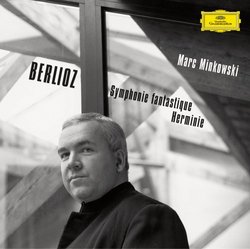 | Hector Berlioz, Marc Minkowski, Les Musiciens du Louvre Berlioz - Symphonie fantastique · Herminie Genres: Pop, Classical
|
Larger Image |
CD DetailsSimilarly Requested CDs
|
CD ReviewsA new way of being "historicist" Leonardo | Argentina | 05/28/2005 (5 out of 5 stars) "this fantastic disc perhaps is not for everyone. You have to have an open mind. I don't know recordings on modern instruments. I have heard about Munch and Colin Davis. Which is better? Ask someone else. What I know are recordings on period instruments and /or HIP. Apart from this one, there are 1- Norrington 1989, London Classical Players. The first one. Great clarity and sound, swift tempi, but an approach nearer to Haydn. After 2 or 3 listenings you realize it is a complete failure. Berlioz is not Haydn. He knew he was making new music. He was making a revolution in the orchestral forces and a new way of thinking a symphony. You simply can't go back and look for haydn because you still do not know Bruckner (the excuse of historicists) 2- Norrington with modern instruments (a German orchestra I think). Very recent. I have heard is the same approach ... 3- Gardiner,recorded in the place of the premiere. Another story. One of the best. Perhaps THE best and the safest choice. He offers a fresh reading with a style I would describe "romantic" but with hints of HIP "cliches". Dramatic and poetic. Far richer than Norrington. So if you want a safe choice with Gardiner you are not wrong. But ... Can somethig new be said about this great work? Can you go even further to a truly romantic interpretation without falling in the "mainstream" or "traditional" "sins" (that is, a big, flat, over-vibratoed sound? I dind't believed until I heard the slow movement under Minkowsky. As I said this new reading is not everyone, including critics. Minkowsky is HIP, historicist. He shapes the contours of music with crisp accents, as all HIPs do in general. In the fast sections he can be terrrific! (1st movement, last 2, passages of the rest). But the great difference is in the slow passages: the beggining of the 1st and the whole 3rd. They are slow, VERY slow (the 3rd lasts 19 min 50 secs !!!! Gardiner, 16:30 !!!). Is this boring??? NOT AT ALL. Minkowsky unfolders the music with such a mastery in dinamic contrast that you never get bored. He exploits every note to its full potential. Are these ideal ways of performing? I don't think so, buy I love the way he does and seems convincing and coherent. After all the symphony is a revolution: berlioz delivers us to the extremes of composition (no one had done the same so far), so I think tje extremes of music deserves the extremes of conducting. And Minkowsky did it! He is really brave and shows he can be truly romantic but at the same time still sounds "historicist". Another way this disc makes new ground is in the performing resources: a mixture of period (woodwind, brass, percussion) and modern (strings) instruments, but with very controlled vibrato and divided violins. No obligato cornet part (a feature Berlioz added much later). The rest of the disc is a soprano cantata which features part of the "idee fixe". perhaps not an essential Berlioz work but it shows an example of how should be sung an opera in the 19 (french) century: exemplary vocal control. Try the slow movement, take your time. If you enjoy, as I do, you will think this disc is a triumph. Don't miss." Can You Hum in French? Giordano Bruno | Wherever I am, I am. | 07/23/2010 (5 out of 5 stars) "By the time I first encountered French as a spoken language, I'd already studied Latin and mastered Italian, and I thought French sounded like someone speaking those languages with a serious head cold. Decades later, I can read French easily but I still struggle with hearing it as intelligible speech. But I recognize it instantly as the "musical" dialect of composers from Rameau to Debussy to Dusapin. It seems to me that almost every fine composer hears his own music in and through his own language. That may be why I like this recording of Berlioz's music by Les Musiciens du Louvre so much; it sounds like French to me. Not just the text of the early cantata Herminie, sung in French by a genuine Parisienne! The "Symphonie fantastique" sounds more French under the baton of Marc Minkowski than it ever has when conducted by English speakers; the slurs come out as 'liaisons', the rhythms are closer to the delicacy of hexameters, the "Rs" of the percussion are gutteral rather than labial.
But then there's the issue of instruments. The CD notes don't specify who is playing what, but it's obvious that at least the reeds and percussion are "historical" while the strings may be "modern". In any case, Minowski is a perfect example of the younger conductors of our times who have yielded to the spell of "historically informed performance." The crispness of attacks, the transparency of timbres, the energetic tempi, and the balance of inner voices are all characteristics of Baroque sensibilities, and Minkowski has established his credentials on performances of the baroque repertoire. Here's what you'll find in his ensemble's own web page: ""Founded in 1982 by Marc Minkowski, les Musiciens du Louvre * Grenoble (artists in residence at the Grenoble Cultural Centre La MC2 since 1996) are closely associated with the revival of Baroque music in France, but also more generally with the interpretation of music on original instruments and in the appropriate style of a given epoch. The artistic project of the Musiciens du Louvre-Grenoble is therefore to progressively propose a fresh look at the symphonic and operatic repertoire from the baroque period through to modern music, and to put back into this repertoire certain works which have been left out for obscure or unjustified reasons. This project makes Les Musiciens du Louvre-Grenoble one of the most versatile, inventive and original orchestras in the world. The orchestra has made its reputation with critically acclaimed interpretations of Handel, Purcell and Rameau, but also of Haydn and Mozart amongst others. Taking this direction has naturally led them to defend later and later repertoires, with a particular predilection for French music of the nineteenth Century ...."" Berlioz was a master of orchestration, THE master by example and by theoretical writings of Wagner and the rest of the 19th Century. When Berlioz specified a part for ophicleide or saxhorn, you can be sure it wasn't just because he had a cousin who played ophicleide and who needed a job; it was because he 'heard' the unique timbre of the ophicleide in the music he was composing. French reed players, by the way, have always (and still do) cut and scrape their reeds differently from Anglo-Germans. So it has to be the reeds especially that sound both French and historic in this performance. You'll hear the most obvious differences in the fourth and fifth movements of the Symphonie fanatstique, and those difference are so striking that you'll never want to hear the work on merely modern instruments again. Even if you've supposed that you've heard it to death, that the Symphonie fantastique is a tired warhorse fit only for bandshells, this recording will open your ears and make your heart throb with it again. I have to credit John Eliot Gardiner and his largely English orchestra for reviving my enthusiasm for the music of Berlioz, with his DVD of Les Troyens and his CD of Harold en Italie. But his recording of the Symphonie fantastique pales as an interpretation in comparison to this one by Marc Minkowski. But don't try to listen to it in a noisy or distracting ambience! Minkowski plays the grand pause "silences" with maximum emotional volume. His pianissimo passage as as soft as chenille and his fortissimos are heart-stoppingly explosive. Nothing is withheld or moderate in his fantastic symphonism. The cantata Herminie was Berlioz's submission to the contest for the Prix de Rome in 1828, scored for a small orchestra and a soprano in the role of the love-stricken infidel queen Herminia, a character from Tasso's epic "Jerusalem Delivered". Tasso had been the source of libretti for dozens of baroque operas and cantatas, and the text of Berlioz's cantata was not his choice but rather the requirement of the Prix de Rome committee. Berlioz deliberately structured his submission conservatively, with old-fashioned recitativos and da capo arias. He was still too radical for the judges, who assigned him only second prize. I defy most people to even guess the identity of the winner of the first prize! The juxtaposition of the Symphonie fantastique and Herminie is apt programming, since the recurrent theme of the Symphonie - the theme that everyone hums - comes directly from the opening bars of the cantata. Even that wasn't the first usage Berlioz made of it; he'd conceived it at age fourteen as a melody of passion for his then-beloved Estelle. Soprano Aurelia Legay sings the three arias of Herminie with ferocious dramatic affect -- lovesickness; fear; defiance -- without ever losing that "historical' fineness of vocal control." |

 Track Listings (13) - Disc #1
Track Listings (13) - Disc #1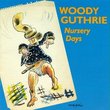
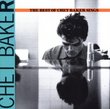
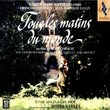
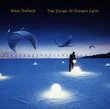

![Seussical [2000 Original Broadway Cast]](https://nationalbookswap.com/cd//m/02/4802/514802.jpg)



